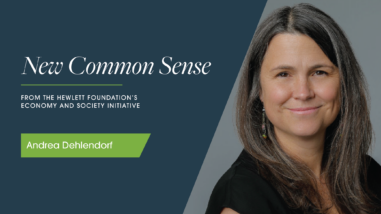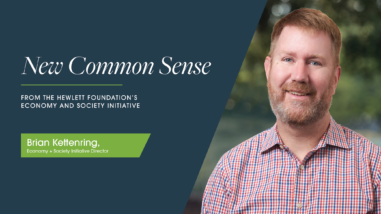Harvard University
For Research On The Economic Impacts Of Population/reproductive Health
-
Amount$600,000
-
Program
-
Date Awarded7/20/2011
-
Term36.0 Months
-
Type of SupportProject
Strategies
Overview
Given competing demands for funds in developing countries, policymakers and advocates need strong evidence for the effectiveness of reproductive health and family planning services. This recommended grant to a team led by David Canning and David Bloom would support research to develop the evidence base on the effect of reproductive health and family planning services on fertility, child and maternal health, children’s education, female labor supply, and household poverty. Findings are expected to inform policy debates about the role of family planning and reproductive health in generating economic growth and meeting the Millennium Development Goals (MDGs). The research team will focus especially on sub-Saharan Africa, where economic development and fertility transition have lagged behind other developing regions.
About the Grantee
Grantee Website
www.harvard.edu
Address
Office for Sponsored Programs
1033 Massachusetts Avenue, 5th Floor, Cambridge, MA, 02138, United States
Grants to this Grantee
For a political economy conference
The Allen Lab for Democracy Renovation at Harvard University seeks to address threats to American and global democracies with research and field-building in support of robust political equality, fully inclusive institutions, and broader avenues for participation and connectedness, all of which rest on the material and social bases for human flourishing. This grant will support a major multidisciplinary conference to spotlight the new paradigm for political economy to replace neoliberalism that has emerged through the work of many scholars around the globe over many years. The event will bring together scholars, policymakers, journalists and storytellers, and practitioners to lay out, interrogate, and explore the new paradigm and its application to the most pressing policy challenges of our time.
for The People Lab
The People Lab aims to empower the public sector by producing cutting-edge research on the people of government and the communities they are called to serve. The lab studies, designs, and tests strategies to solve urgent public sector challenges in three core areas: strengthening the workforce, improving resident-government interactions, and reimagining evidence-based policymaking. (Substrategy: Executive Branch)
for Economics for Inclusive Prosperity
Economics for Inclusive Prosperity is a network of academic economists committed to an inclusive economy and society. It is based on the belief that contemporary economics research is rife with new ideas for creating a more inclusive society, but it is up to economists to convince the world this is true. Toward that end, the network members develop and discuss policy ideas based on sound scholarship, with the goal of reaching not just other academics but also a wider audience including students, writers, and policymakers.



